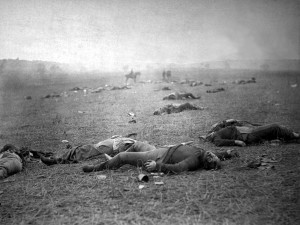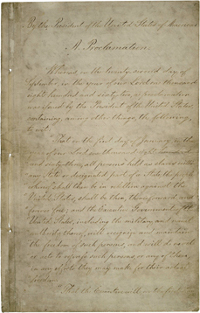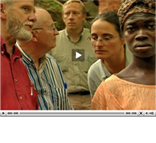

Katrina Browne testifies on the Hill for H.R. 40
Posted June 20th, 2019 by James DeWolf PerryOn June 19, 2019 – Juneteenth – a historic hearing took place in a subcommittee of the House Judiciary Committee on H.R. 40. The bill, originally introduced by Rep. John Conyers in 1989, and now sponsored by Rep. Sheila Jackson Lee, calls for the formation of a national commission to:
- Study the history of slavery and its harmful legacies up to the present day;
- “Educate the American public of the Commission’s findings;” and
- “Recommend appropriate remedies in consideration of the Commission’s findings.”
The bill defines remedies broadly, and invites exploration of the possibility of a national apology, of public policy solutions, and of financial reparations.
Producer/Director Katrina Browne was invited to serve as a witness speaking in support of the bill. Fellow witnesses included: Ta’Nehisi Coates, Danny Glover, Dr. Julianne Malveaux, Prof. Eric Miller, and Bishop Eugene Sutton (Episcopal Bishop of Maryland).
Each witness was given five minutes to speak. You can go here to see CSPAN footage of Katrina’s testimony; the transcript of it; and the longer (6-page) written testimony that she submitted for the record, as per the hearing protocols.
We were thrilled that the last line of Katrina’s testimony was quoted as the last line of the New York Times’ coverage of the hearing, and that it was selected as the New York Times quote of the day on the 20th!
Please lend your support to this important legislation!
What, to the slave, was the Battle of Gettysburg?
Posted July 2nd, 2013 by James DeWolf Perry This essay is cross-posted from the Tracing Center on Histories and Legacies of Slavery, the organization which carries out the mission inspired by “Traces of the Trade.”
This essay is cross-posted from the Tracing Center on Histories and Legacies of Slavery, the organization which carries out the mission inspired by “Traces of the Trade.”
What, to the slave and to free blacks, was the Battle of Gettysburg? ((The title and first line of this essay are a paraphrasing of Frederick Douglass’ famous line, “What, to the American slave, is your Fourth of July?”, in his 1852 July 4th address, “The Meaning of July Fourth for the Negro,” in Rochester, N.Y.))
Today marks the 150th anniversary of the start of the Battle of Gettysburg, which ran from July 1 to 3, 1863.
The Battle of Gettysburg is one of the most well-known events of the Civil War, and its sesquicentennial has been widely anticipated for years. Elsewhere, there are expert military historians to offer the most modern understanding of the battle’s tactical and strategic significance, as well as renowned civil war scholars to interpret the battle’s political and social significance in 1863, and to analyze the public’s memory of the battle in the last century and a half.
At the Tracing Center, we focus on the role of slavery and race in the causes, conduct, and consequences of the Civil War. The Battle of Gettysburg was certainly of strategic importance in determining the outcome of the war, namely, that the Confederacy would be re-incorporated back into the Union, and that emancipation would eventually become a reality throughout the nation. ((Even so, the Battle of Antietam was arguably more significant for the course of the war, and for its role in determining that emancipation would result at the end of the war.))
Beyond the battle’s military significance, though, what does the anniversary of the Battle of Gettysburg tell us about the role of slavery and race in the war, and about the battle’s importance at the time for free and enslaved blacks?
The Emancipation Proclamation’s 150th anniversary in context
Posted January 2nd, 2013 by James DeWolf Perry This entry by James DeWolf Perry, who appears in Traces of the Trade and was the film’s principal historical consultant, is cross-posted from the blog of the Tracing Center, the nonprofit founded to carry on the mission inspired by our documentary, and originally appeared on January 1.
This entry by James DeWolf Perry, who appears in Traces of the Trade and was the film’s principal historical consultant, is cross-posted from the blog of the Tracing Center, the nonprofit founded to carry on the mission inspired by our documentary, and originally appeared on January 1.
Today is the first day of 2013. This is an anniversary year that we’ve been talking about, and anticipating, for a long time here at the Tracing Center.
In 2013, we will celebrate the 50th anniversaries of major civil rights era milestones, including the March on Washington and Dr. King’s legendary “I Have a Dream” speech.
Over the coming year, the nation will also mark the 150th anniversaries of the Battle of Gettysburg and Lincoln’s Gettysburg Address, as well as the New York City Draft Riots (the violence of which was aimed mostly at the city’s free black population) and a host of other Civil War battles and dates.
The anniversaries of the Civil War and the civil rights movement are directly connected, as they represent two different, but closely related, stages in our society’s slow process of reckoning with its centuries-long embrace of slavery and racism. Exploring these anniversary dates, their connections, and their broader significance for racial healing and justice will constitute much of the Tracing Center’s work in the years 2013-2015.
Today, however, marks the 150th anniversary of perhaps the greatest of all of these events: Lincoln’s Emancipation Proclamation.
